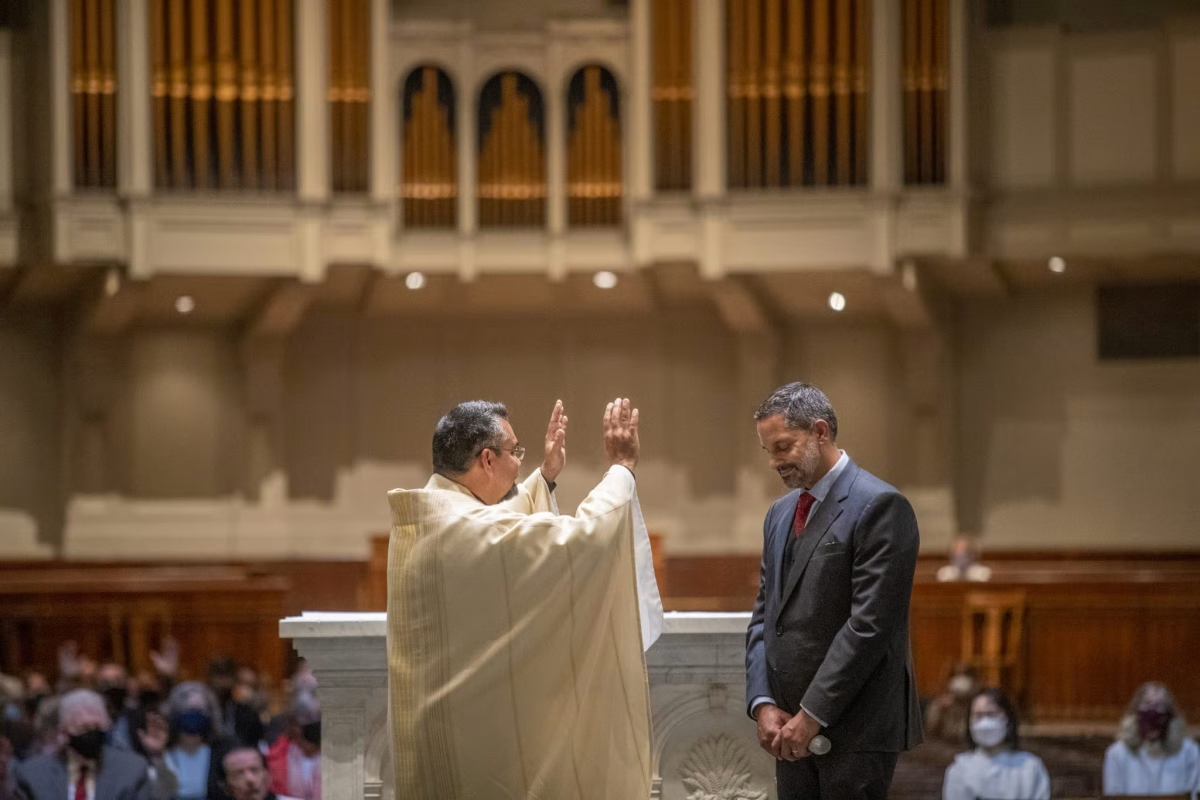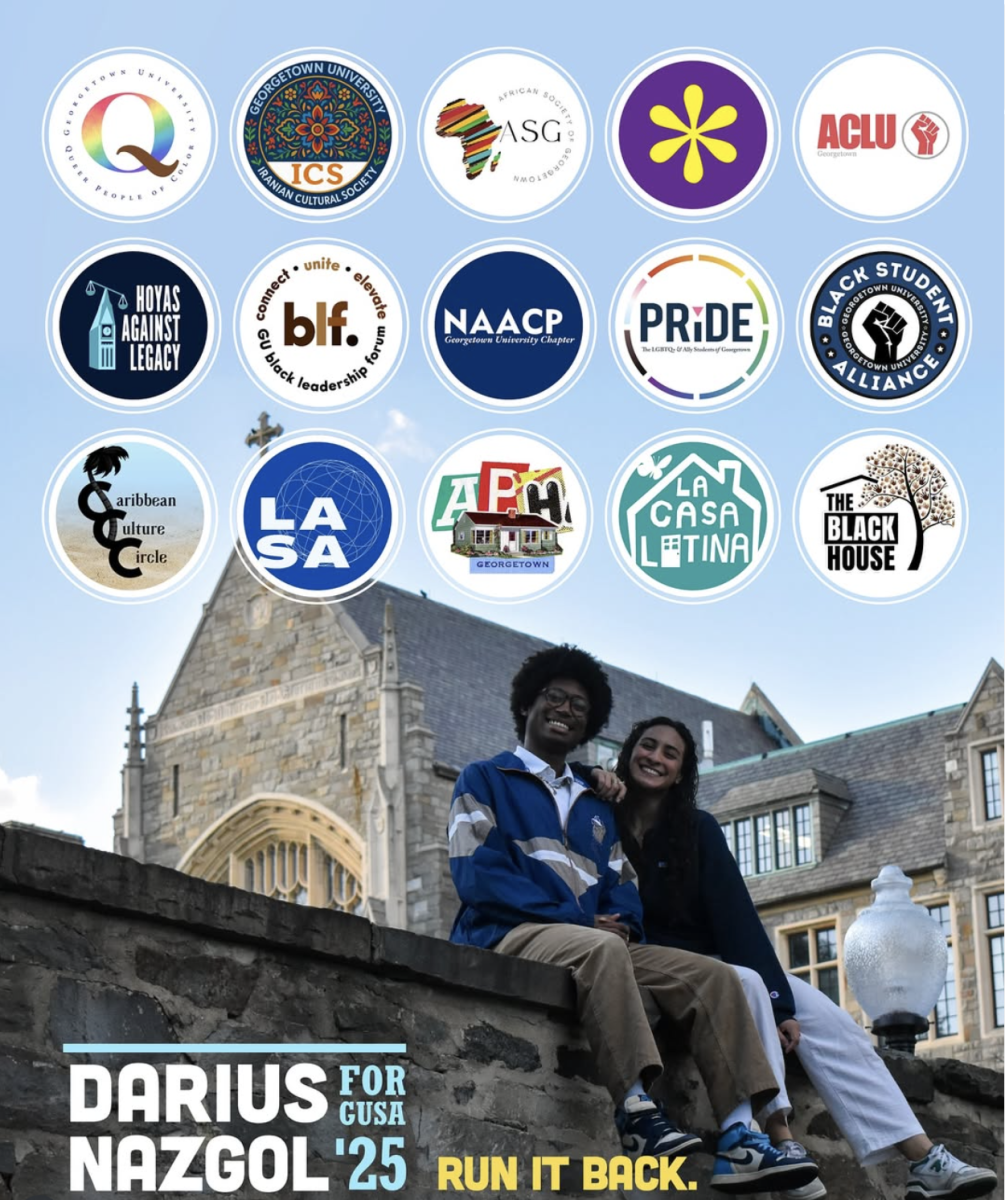Georgetown University public safety officials reported to the FBI the discovery of flyers on campus featuring graphic language relating to the assassination of conservative activist Charlie Kirk, the university announced in a Sept. 25 email to community members.
Josh Bornstein, Georgetown’s vice president for public safety, said university officials removed the flyers following their discovery near Village A and Red Square.
“On Wednesday, September 24, flyers including violent language appeared on the bulletin board outside of the Village A apartment complex, and on Thursday, September 25, similar flyers with violent imagery and language relating to Charlie Kirk appeared in Red Square,” Bornstein wrote in the email.
Some of the flyers — which read, “Hey Fascist! Catch,” “We Protect Us. Do something more than symbolic resistance,” and “FOLLOW YOUR LEADER, REST IN PISS CHARLIE” — included a QR code that redirected those who scanned it to a Google Form titled “Georgetown John Brown Club Interest.” The form did not specify what the Georgetown John Brown Club is, nor does the university officially recognize the club. As of Sept. 25 at 10:09 p.m., the form is no longer accepting responses.
According to a Sept. 12 affidavit filed in a Utah court following Kirk’s assassination, the phrase, “hey fascist! CATCH!” appeared on one of the bullet casings found near the site of the shooting. The Counter Extremism Project (CEP) — a nonprofit, nongovernmental organization dedicated to combatting all forms of violent political extremism — classifies the John Brown Gun Club as a far-left gun rights group which aims to combat white supremacy. However, no publicly accessible information on the John Brown Gun Club exists.
Bornstein said the university removed the flyers and is investigating their presence and potential implications for campus safety.
“In both instances, university officials acted quickly to remove them,” Bornstein wrote. “We are investigating these incidents, and we have reported them to the Federal Bureau of Investigation.”
“The safety and security of the Georgetown community is our highest priority,” Bornstein added.
Lukas Pitman (SFS ’27), president of the Georgetown Bipartisan Coalition (GUBC), said the flyers are not indicative of the Georgetown community or its principles.
“This does not represent our Georgetown community,” Pitman told The Hoya. “I want that to be made clear. This is not representative of Georgetown. This is something that I think we’re all in agreement — specifically as political clubs — that this is not right, this is not okay, and for us to be construed as supportive of that; it’s wrong.”
“It’s disingenuous to all the dialogue and all the relationships we built on campus together working toward the common good,” Pitman added.
Knox Graham (SFS ’27), director of political affairs for Georgetown University College Republicans (GUCR), said he appreciates the university’s swift response to the flyers.
“We are fully confident in the capabilities of Georgetown University in cooperation with the Federal Bureau of Investigation to investigate this occurrence and hold the perpetrators responsible, both with respect to the law and the code of student conduct if applicable,” Knox wrote to The Hoya.
Linda McMahon, secretary of the U.S. Department of Education (DOE), said in a Sept. 25 post on X that DOE officials were aware of the flyers and received confirmation from the university of their removal.
“I am aware of the appalling posters that were displayed on Georgetown’s campus today,” McMahon wrote in the post. “At a moment like this, Georgetown has to determine what it stands for as an institution. ED officials have spoken to Georgetown administrators, who made the decision to remove the flyers.”
GUBC, Georgetown University College Democrats (GUCD) and GUCR said the university must protect students’ ability to express opinions freely in a joint statement.
“While student groups retain the right to disagree with others, we have to draw a line when students feel unsafe actually expressing those opinions,” the organizations wrote in the statement. “We call upon the university to investigate the source of these posters and take action to remedy the harm done to our Georgetown community.”
Georgetown students have expressed anxiety and concern about increasing political violence in the wake of Kirk’s Sept. 10 assassination. Many reaffirmed their commitment to respectful dialogue across the political spectrum. Roughly 30 students attended a Sept. 12 vigil on the steps of Old North Hall to commemorate Kirk’s legacy and condemn political violence.
Bornstein said the university understands the possible impacts of the flyers and recent political violence on student life, directing students to campus resources for mental health and safety.
“We recognize these incidents have been distressing to members of our community,” Bornstein wrote.
GUCD said the flyers — and all acts of threatening messages — are contrary to the university’s values and a danger to the right to free expression.
“We find the recent threats and hateful messages celebrating the death of Charlie Kirk posted around our campus an inexcusable betrayal of our principles,” the organization wrote in the statement. “Such acts are reprehensible and must be met with a unified, consistent rejection; otherwise, we risk eroding our essential freedom of expression.”
GUCD added that discussions of free speech and public safety must account for all forms of political violence, including violence faced by marginalized communities.
“Political violence includes verbal threats, targeted harassment and dehumanizing rhetoric, which affect the daily lives of immigrants, the LGBTQ+ community, people of color, and religious minorities on campus and across the country,” the organization wrote. “They cannot be ignored in conversations about free speech and safety.”
Pitman said freedom of expression is essential to students’ university experience.
“To be a student is to express yourself without fear, to express your own opinions without thinking that what you’re going to say is going to put you in personal harm,” Pitman said. “The posters that were put out throughout campus, they strike to the very heart against that idea that make students feel unsafe about actually expressing their opinions.”









